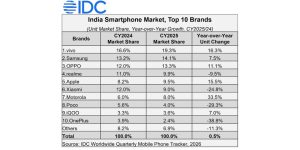In a groundbreaking move, Tata Motors, a trailblazer in India’s automotive industry, has announced significant price cuts for its electric vehicles (EVs), marking a pivotal moment for the burgeoning EV market in the country. The reduction, up to 8%, is the first of its kind in India and underscores Tata Motors’ commitment to fostering widespread adoption of electric mobility.
Key Points:
Tata Motors Initiates Price Cuts: Tata Motors, a key player in India’s automotive industry, announces substantial price reductions for its electric vehicles (EVs), marking a significant milestone in the country’s EV market.
Proactive Strategy: Vivek Srivatsa, Chief Commercial Officer, highlights Tata Motors‘ proactive decision to pass on the benefits of softened battery cell prices to customers, reflecting a forward-thinking approach to stimulate EV adoption.
Market Challenges: With only a 2% share of total car sales in India, EVs face challenges related to higher upfront costs and lingering concerns about range anxiety among consumers.
Model-Specific Reductions: Tata Motors implements price cuts of up to 8%, impacting popular models such as the Nexon.ev and Tiago. The Nexon.ev, now priced at 1.45 million rupees, experiences a 1.4% reduction, while the Tiago sees an 8.1% cut, making the base version available at 799,000 rupees.
Global EV Landscape: Tata Motors’ move aligns with the global trend of slowing EV sales, with competitors like Tesla engaging in price-cutting strategies to maintain market dominance.
Features:
Strategic Price Adjustment: Tata Motors’ decision to reduce EV prices showcases a strategic response to market dynamics, focusing on making electric mobility more accessible to a broader audience.
Consumer Benefits: Lower upfront costs aim to address consumer concerns and encourage the adoption of sustainable transportation.
Model-Specific Impact: The price cuts are tailored to popular models, ensuring a tangible impact on consumer choices and preferences.
Pricing:
Nexon.ev Reduction: The price of the top-selling Nexon.ev is now down 1.4% to 1.45 million rupees, making it more competitive in the market.
Tiago Price Cut: The base version of the Tiago witnesses a substantial 8.1% cut, now priced at 799,000 rupees, enhancing affordability.
Conclusion:
Tata Motors’ bold move to reduce EV prices emerges as a catalyst for reshaping the electric mobility landscape in India. By addressing cost concerns and positioning EVs as more affordable options, Tata Motors aims to ignite a surge in consumer interest and contribute to the paradigm shift towards sustainable transportation. As the automotive industry navigates the evolving dynamics of electrification, Tata Motors stands at the forefront, steering the way for a future where electric mobility becomes a viable and appealing choice for a broader spectrum of consumers.
Follow Before You Take on Facebook | Twitter | WhatsApp Channel | Instagram | Telegram | Threads, For the Latest Technology News & Updates | Latest Electric Vehicles News | Electronics News











































































































































































